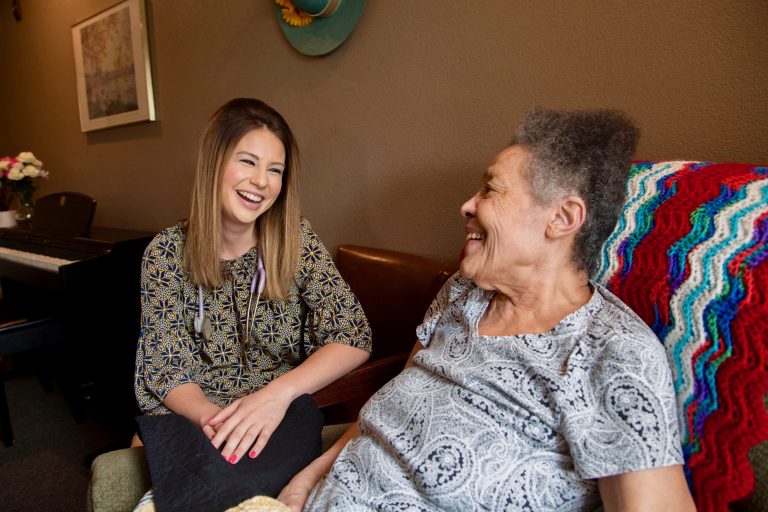
Aspen House Memory Care Assisted Living - Loveland, CO
Born and raised in Colorado, Allissa knew since she was little that she wanted to become a nurse. Stemming from her early infatuation with TV shows about emergency rooms, Allissa’s nursing career began in high school when she obtained her certified nursing assistant (CNA) license and accepted her first job in long-term care working as a CNA at Aspen House Memory Care Assisted Living. There, her passion for the profession became immediately clear. Having witnessed her great grandparents struggle with dementia, she found that she could easily relate to residents and family members. She knew that her heart was in geriatric and dementia care.
It all clicked for Allissa upon her first encounter with a resident at Aspen House who became extremely upset after moving in. In that moment, Allissa realized how vulnerable he was and stayed with him, offering him help, as she understood his need for humility and compassionate care.
“The more I saw things – I realized that the people with dementia need caregivers to understand them and allow them their dignity, as opposed to scolding or shaming them,” says Allissa.
“When providing care for people with dementia, it is easy to lose sight of the human being who is lost in a world of confusion and lashes out in fear and anger as a result. Allissa never lost sight of our parents as complete human beings who had led full and interesting lives. She treated them sensitively and with great respect even in challenging situations.”
Her role at Aspen House consists of various responsibilities, including managing all of the medication, wound care and resident assessments. As a certified dementia care practitioner, she also provides the majority of the education, including a monthly support group, for staff members and for family members who may not understand dementia behavior.
“I think one of her most outstanding qualities is her ability to deal with a difficult situation, communicate to all involved – family, medical professional, the team at Aspen House – and then communicate back to the people she was caring for, my parents,” says the child of former residents. “She was calm, always hopeful and looking for the most simple, clear and kind resolution to any situation and would respond in a thoughtful manner that allowed us all to make choices, to feel in charge and to keep our dignity.”
To Allissa, compassion has to be tailored to the individual just as much as the physical care. For instance, it’s saving a piece of bacon for a woman’s stuffed dog who she believes is starving. It’s inviting the retired nurse to a meeting to hear her valued input. It’s parting with one of your favorite sweaters because the resident claimed it as her own.
“If I could summarize compassionate care in just one word, I would use, ‘love,’” says Allissa. “If you could put yourself in a position where you’re thinking of the patient as your own family member, your own spouse whom you love, and treat them the way you would expect your person to be treated – with love, kindness and competency.”
© 2025 The Schwartz Center. All Rights Reserved.